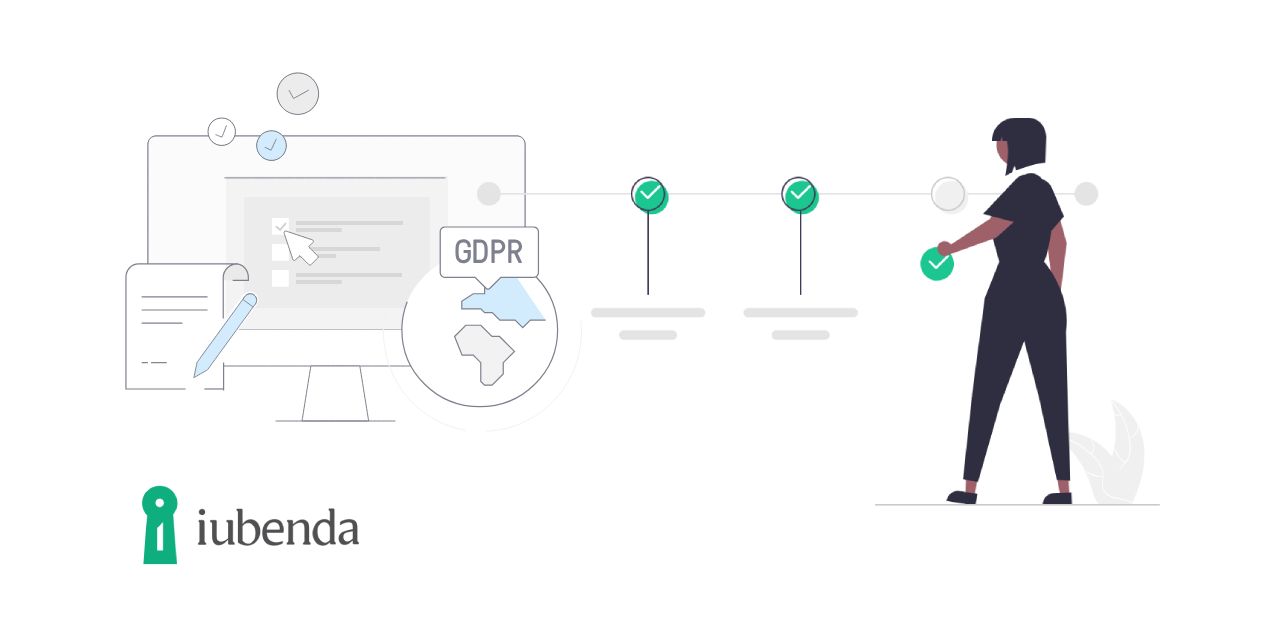The GDPR principles guide on how you should process and handle data. In this post, we explain the 7 principles of GDPR and how you can follow them in real-life situations. This helps you understand the General Data Protection Regulation (GDPR) better and makes sure you’re doing things the right way.
The 7 Principles of GDPR ⬇️

What are the 7 principles of GDPR?
The 7 principles of GDPR are: 1) Lawfulness, Fairness, and Transparency, 2) Purpose Limitation, 3) Data Minimization, 4) Accuracy, 5) Storage Limitations, 6) Integrity and Confidentiality, and 7) Accountability. Read on to learn more about how to put these 7 GDPR principles into practice.
1. Lawfulness, Fairness and Transparency
Lawfulness means that all the processes concerning your users’ data should be carried out on a recognized lawful basis.
These processes should also be fair and transparent, that is, you must abide by your privacy policy and use your users’ data only in the way you’ve shared with them.
2. Purpose Limitation
The principle of purpose limitation is connected to the one of transparency: in your privacy policy, you must clearly state what are the purposes of your collection and processing activities, and thus use the data only for those purposes.
3. Data Minimization
Even though, according to the GDPR, it’s better to use anonymous data, where personal data is needed, it should be limited to what is necessary for your purpose. So you must collect the minimum data possible.
Go Beyond the Basics: There’s More to GDPR Than Just 7 Principles
Explore our full GDPR guide for must-know insights, including:
4. Accuracy
The data you store should be accurate and up-to-date.
It’s your responsibility to make sure the data you collect is correct and up-to-date. To do this, set up systems to validate and correct data as it comes in, and schedule regular audits to review the data you’ve stored. If you’re in charge of the data, either as the controller or processor, you should take “reasonable steps” to make sure of this.
5. Storage Limitations
GDPR principles state that the data you store should be up-to-date, but you can’t store it forever.
The GDPR requires that you set a time limit – the shortest possible – and that you explain why you need to store your users’ data for that period of time. When the time comes, you must erase or review the data you stored.
6. Integrity and Confidentiality
According to the GDPR principles of integrity and confidentiality, you should store your users’ data securely, protecting them from unlawful processing or accidental loss, destruction or damage. You should also protect your users’ identity. Through anonymization, for instance.
7. Accountability
The GDPR requires that, under certain circumstances, you should keep a “full and extensive” documentation of all your activities.
Even if your processing activities somehow fall outside these situations, you still have to keep basic records relating to which data you collect, its purpose, all parties involved in its processing and the data retention period. This is mandatory for everyone.
📌 To sum up: 7 GDPR Principles to Follow for Protecting Users’ Data
So there you have it! These are the 7 key principles of GDPR that help guide how you should collect and use people’s personal information. Remember:
- Be fair, open, and lawful when you collect and use data.
- Only use the data for the reasons you’ve stated.
- Don’t collect more data than you need.
- Make sure the data is correct.
- Don’t keep the data longer than you have to.
- Keep all the data safe and secure.
- Always keep track of what you’re doing with the data.
Following these 7 rules will help you understand GDPR better and make sure you’re doing everything the right way.
Need a GDPR Compliance Checklist?
👉 Check our comprehensive GDPR cheat sheet: everything you need to know to comply!
